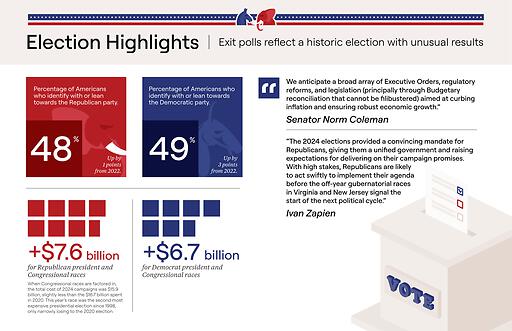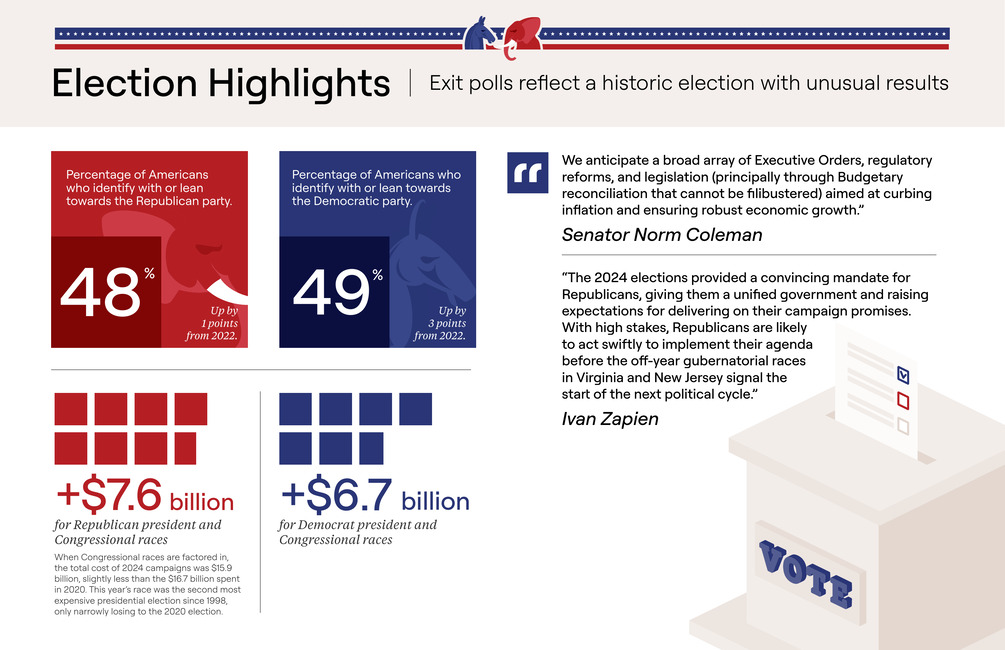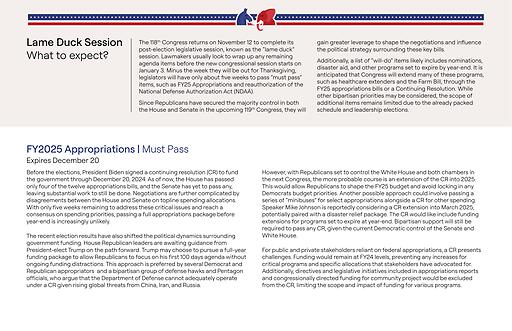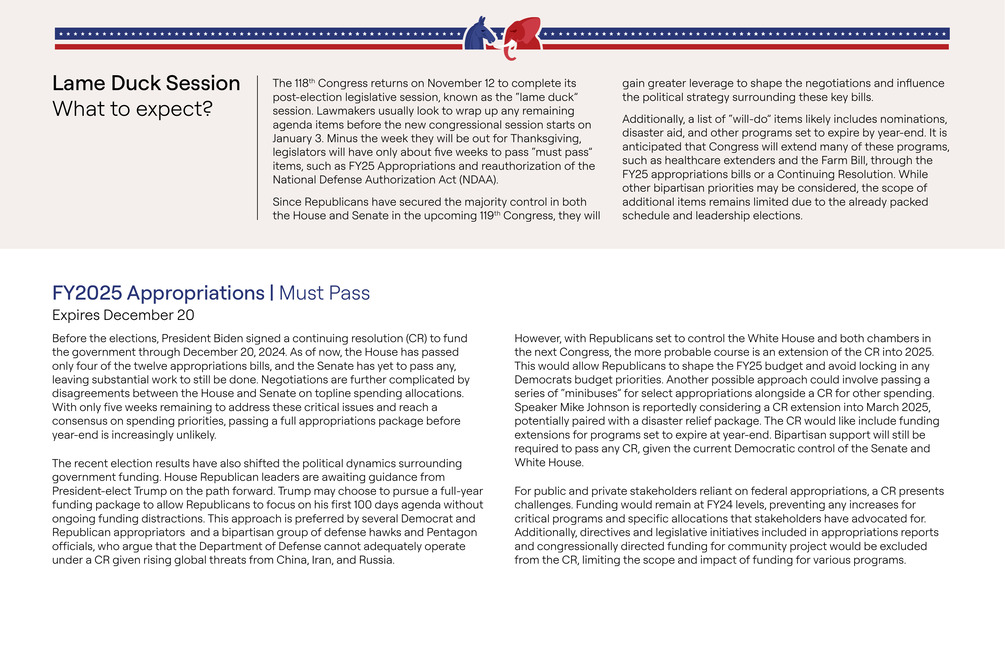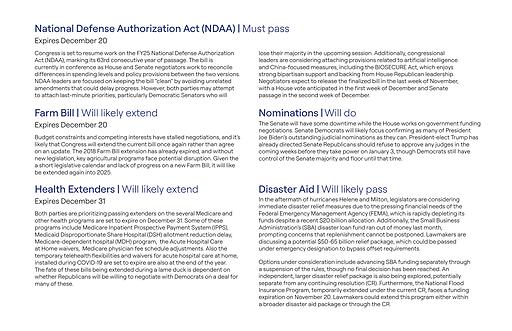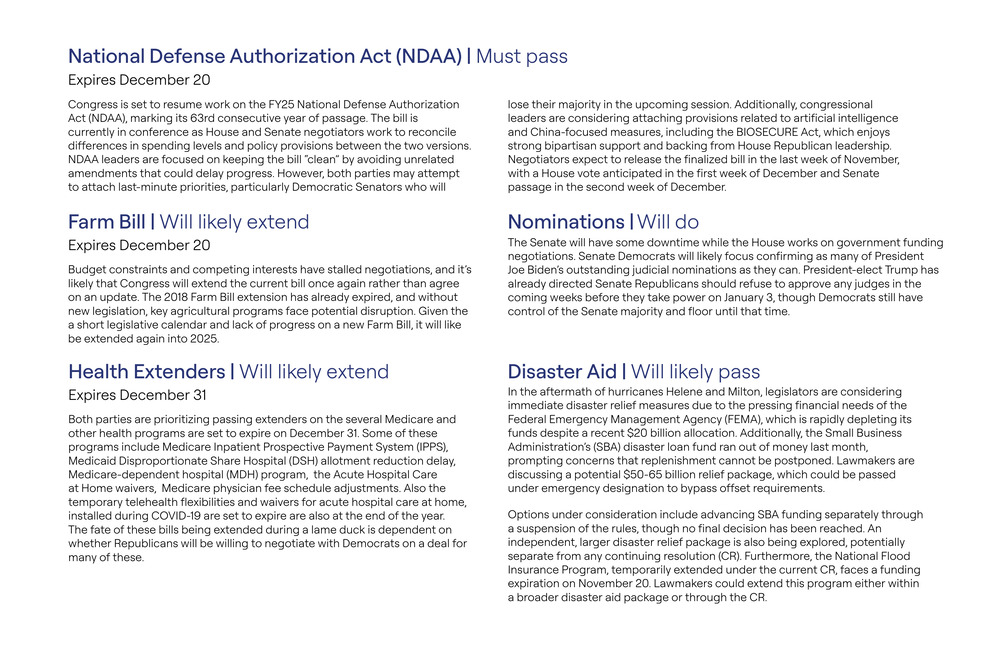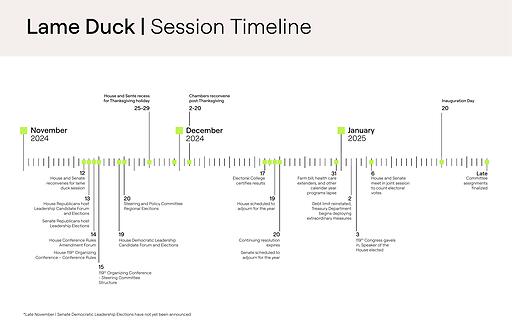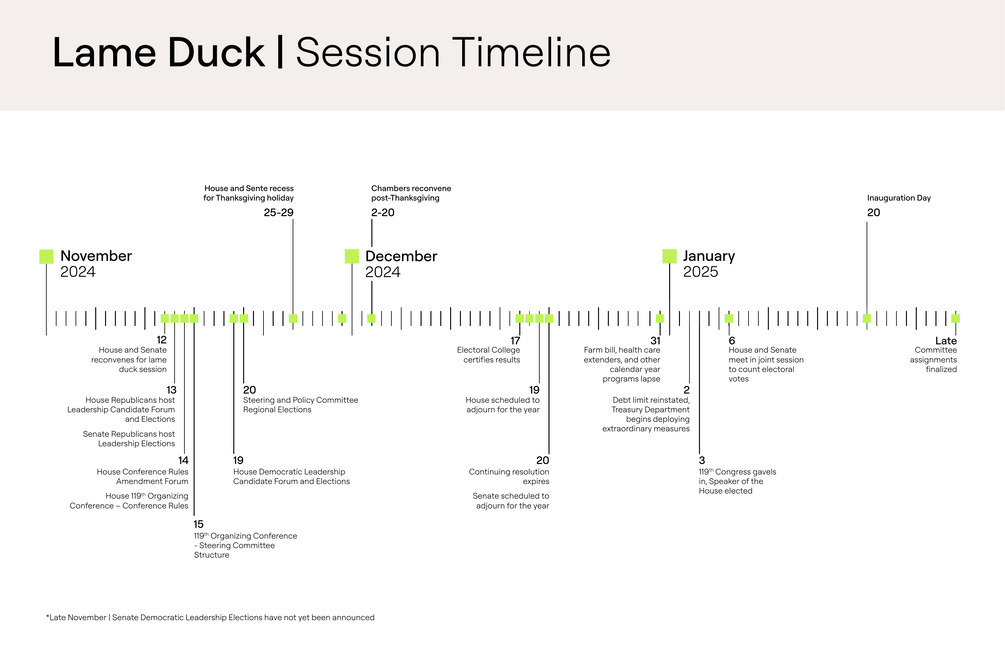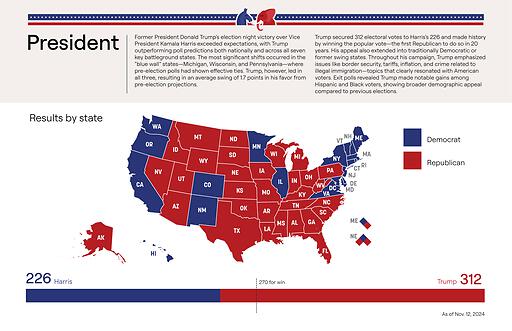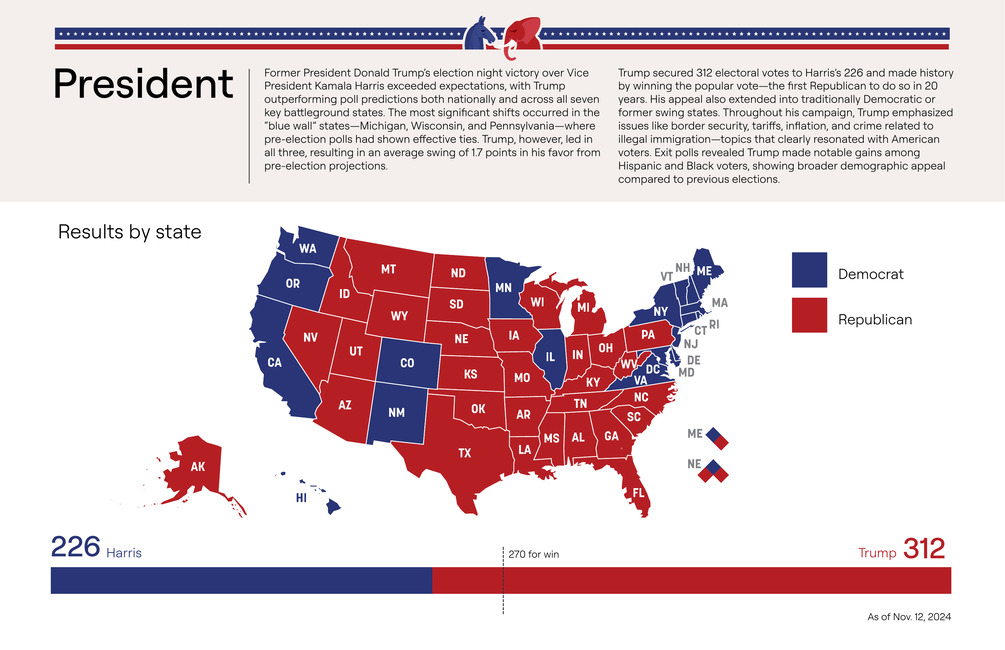Elections Outlook Report - Flipbook - Page 5

National Defense Authorization Act (NDAA) | Must pass
Expires December 20
Congress is set to resume work on the FY25 National Defense Authorization
Act (NDAA), marking its 63rd consecutive year of passage. The bill is
currently in conference as House and Senate negotiators work to reconcile
differences in spending levels and policy provisions between the two versions.
NDAA leaders are focused on keeping the bill “clean” by avoiding unrelated
amendments that could delay progress. However, both parties may attempt
to attach last-minute priorities, particularly Democratic Senators who will
lose their majority in the upcoming session. Additionally, congressional
leaders are considering attaching provisions related to artificial intelligence
and China-focused measures, including the BIOSECURE Act, which enjoys
strong bipartisan support and backing from House Republican leadership.
Negotiators expect to release the finalized bill in the last week of November,
with a House vote anticipated in the first week of December and Senate
passage in the second week of December.
Farm Bill | Will likely extend
Nominations | Will do
Expires December 20
The Senate will have some downtime while the House works on government funding
negotiations. Senate Democrats will likely focus confirming as many of President
Joe Biden’s outstanding judicial nominations as they can. President-elect Trump has
already directed Senate Republicans should refuse to approve any judges in the
coming weeks before they take power on January 3, though Democrats still have
control of the Senate majority and floor until that time.
Budget constraints and competing interests have stalled negotiations, and it’s
likely that Congress will extend the current bill once again rather than agree
on an update. The 2018 Farm Bill extension has already expired, and without
new legislation, key agricultural programs face potential disruption. Given the
a short legislative calendar and lack of progress on a new Farm Bill, it will like
be extended again into 2025.
Health Extenders | Will likely extend
Disaster Aid | Will likely to pass
Expires December 31
In the aftermath of hurricanes Helene and Milton, legislators are considering
immediate disaster relief measures due to the pressing financial needs of the
Federal Emergency Management Agency (FEMA), which is rapidly depleting its
funds despite a recent $20 billion allocation. Additionally, the Small Business
Administration’s (SBA) disaster loan fund ran out of money last month,
prompting concerns that replenishment cannot be postponed. Lawmakers are
discussing a potential $50-65 billion relief package, which could be passed
under emergency designation to bypass offset requirements.
Both parties are prioritizing passing extenders on the several Medicare and
other health programs are set to expire on December 31. Some of these
programs include Medicare Inpatient Prospective Payment System (IPPS),
Medicaid Disproportionate Share Hospital (DSH) allotment reduction delay,
Medicare-dependent hospital (MDH) program, the Acute Hospital Care
at Home waivers, Medicare physician fee schedule adjustments. Also the
temporary telehealth flexibilities and waivers for acute hospital care at home,
installed during COVID-19 are set to expire are also at the end of the year.
The fate of these bills being extended during a lame duck is dependent on
whether Republicans will be willing to negotiate with Democrats on a deal for
many of these.
Options under consideration include advancing SBA funding separately through
a suspension of the rules, though no final decision has been reached. An
independent, larger disaster relief package is also being explored, potentially
separate from any continuing resolution (CR). Furthermore, the National Flood
Insurance Program, temporarily extended under the current CR, faces a funding
expiration on November 20. Lawmakers could extend this program either within
a broader disaster aid package or through the CR.
